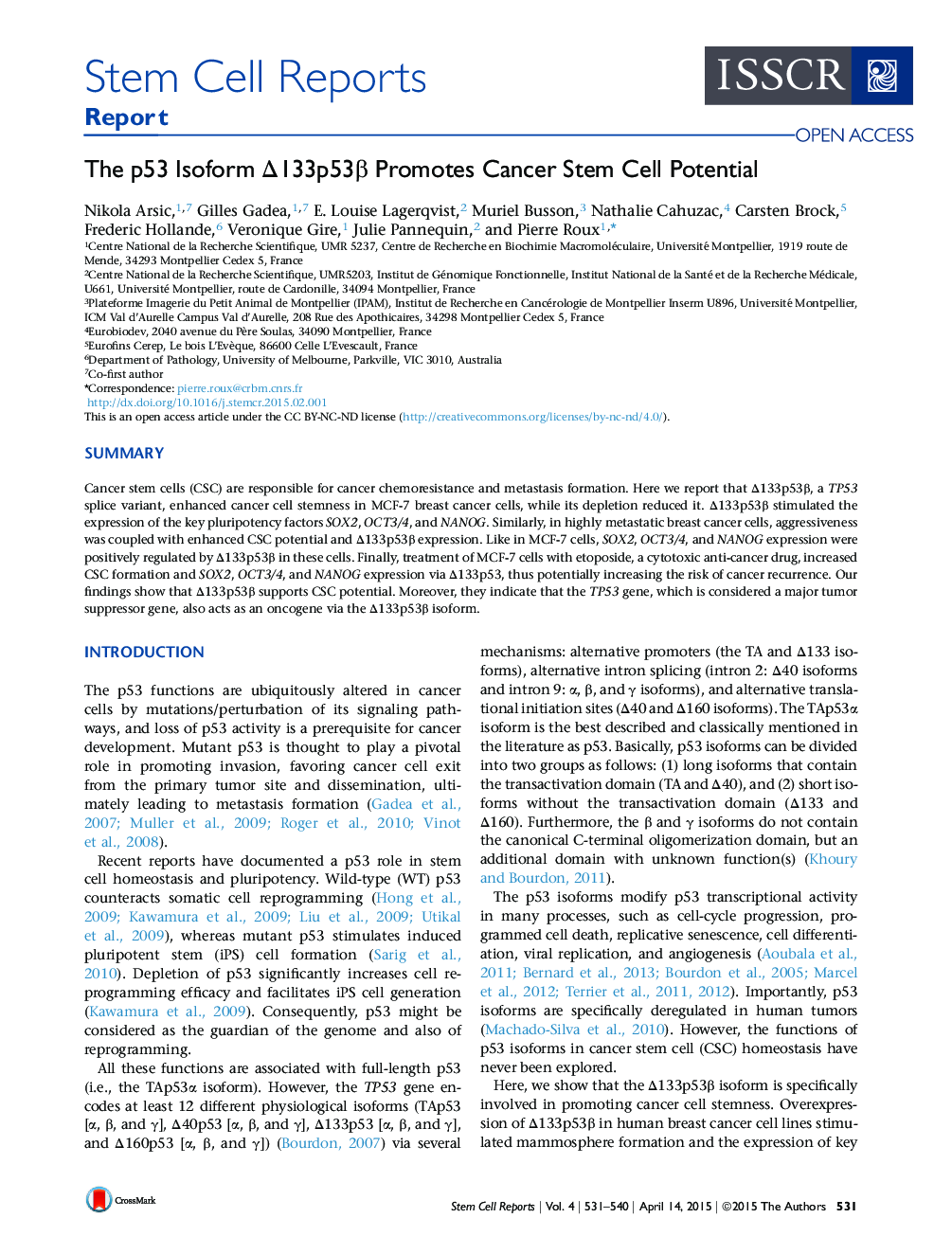| Article ID | Journal | Published Year | Pages | File Type |
|---|---|---|---|---|
| 2093604 | Stem Cell Reports | 2015 | 10 Pages |
•The Δ133p53β isoform promotes stemness of breast cancer cells•The Δ133p53β isoform regulates SOX2, OCT3/4, and NANOG expression, but not C-MYC•Etoposide promotes cancer cell stemness through Δ133p53β induction•Δ133p53β expression, like p53 mutations, promotes cancer cell stemness
SummaryCancer stem cells (CSC) are responsible for cancer chemoresistance and metastasis formation. Here we report that Δ133p53β, a TP53 splice variant, enhanced cancer cell stemness in MCF-7 breast cancer cells, while its depletion reduced it. Δ133p53β stimulated the expression of the key pluripotency factors SOX2, OCT3/4, and NANOG. Similarly, in highly metastatic breast cancer cells, aggressiveness was coupled with enhanced CSC potential and Δ133p53β expression. Like in MCF-7 cells, SOX2, OCT3/4, and NANOG expression were positively regulated by Δ133p53β in these cells. Finally, treatment of MCF-7 cells with etoposide, a cytotoxic anti-cancer drug, increased CSC formation and SOX2, OCT3/4, and NANOG expression via Δ133p53, thus potentially increasing the risk of cancer recurrence. Our findings show that Δ133p53β supports CSC potential. Moreover, they indicate that the TP53 gene, which is considered a major tumor suppressor gene, also acts as an oncogene via the Δ133p53β isoform.
